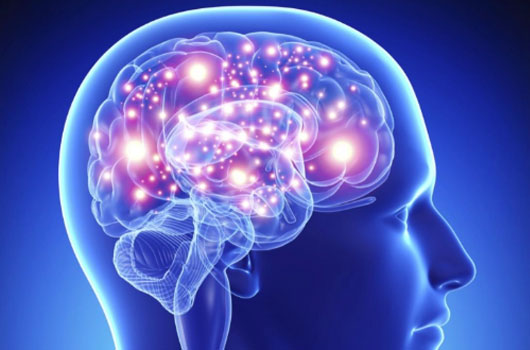Feed Your Brain: How Nutrition Shapes Your Mood, Memory & Mental Clarity
Introduction: Murder, Mood, and Mackerel? In his book The Feel Good Factor, nutrition expert Patrick Holford presented striking findings: you can predict a country’s murder rate, depression, and suicide levels by the amount of seafood its population consumes. The link? Omega-3 fatty acids—essential for brain health and largely absent from ultra-processed modern diets.

The Gut-Brain Axis: A Two-Way Superhighway The gut is often referred to as the “second brain” for good reason. It contains its own neural network—the enteric nervous system—and connects with the central nervous system via the vagus nerve. Research shows that 90% of communication on this axis flows from the gut to the brain, not the other way around. (https://www.healthline.com/nutrition/gut-brain-connection)
The gut microbiome—comprising trillions of microbes—plays a vital role in modulating inflammation, immune responses, and even the production of neurotransmitter precursors. While serotonin itself cannot cross the blood-brain barrier, amino acids such as tryptophan, obtained through diet, do. Once inside the brain, these precursors are converted into key neurotransmitters like serotonin, dopamine, and melatonin, essential for mood, sleep, and focus.
This has implications for conditions such as ADHD, where dopamine and norepinephrine regulation are key, and depression, often associated with low serotonin and chronic inflammation.
Inflammation, Cytokines & Cognitive Decline Inflammatory cytokines originating in the gut can breach the blood-brain barrier and alter the function of neurons and glial cells. (https://www.ncbi.nlm.nih.gov/pmc/articles/PMC4313590/). Poor gut health can exacerbate symptoms of depression, anxiety, and cognitive impairment.
Conditions like IBS are now recognised as disorders of the gut-brain axis, with high co-occurrence of mental health challenges. (https://pubmed.ncbi.nlm.nih.gov/26662472/)
Hormones, Phytoestrogens and Perimenopause Women entering perimenopause often report brain fog, memory issues, and mood swings. Phytoestrogens—plant compounds that mimic oestrogen—can help to balance hormonal fluctuations. Foods rich in phytoestrogens such as flaxseed, legumes, and fermented soy can support cognitive function during this transition by modulating oestrogen receptors in the brain.
Blood Sugar: Your Brain’s Energy Source and Saboteur Your brain consumes about 20% of your body’s glucose. Refined carbohydrates and sugary foods cause spikes in blood sugar, followed by crashes that trigger stress hormones like cortisol. This rollercoaster affects mood, concentration, and sleep. Long-term, it contributes to insulin resistance—a key factor in neurodegenerative diseases.
Dr Robert Lustig has shown that insulin resistance in the brain reduces glucose uptake and accelerates cognitive decline. Alzheimer’s disease is now often referred to as “Type 3 Diabetes”. (https://www.youtube.com/watch?v=m8dWNbEscOw&t=18s)
The Role of Fats: Omega-3s and Beyond The brain is nearly 60% fat. EPA and DHA, found in oily fish like salmon and sardines, are critical for maintaining the structure of brain cell membranes and modulating inflammation.
Patrick Holford’s findings further link low fish consumption with high rates of aggression, depression, and suicide across nations. A deficiency in Omega-3s may compromise neural signalling, affecting emotional regulation and cognitive performance. (Holford, The Feel Good Factor, Piatkus, Chapter 10)
Neurotransmitters and Protein: A Building Block Approach Essential amino acids, particularly tryptophan and tyrosine, are precursors for neurotransmitters like serotonin and dopamine. Found in eggs, poultry, cheese and legumes, they are especially important for individuals with ADHD, depression or sleep disturbances. (https://www.ncbi.nlm.nih.gov/pmc/articles/PMC7352907/)
Intermittent Fasting: Brain Regeneration and Resilience Studies led by Prof. Sandrine Thuret suggest that intermittent fasting boosts neurogenesis—the creation of new brain cells—in the hippocampus, the brain’s memory centre. (https://www.youtube.com/watch?v=B_tjKYvEziI)
Fasting also triggers autophagy, a cellular clean-up process that reduces inflammation and oxidative stress. Even fasting for 12–14 hours overnight can yield cognitive benefits.
Antioxidants: Nature’s Neuroprotectors Colourful fruits and vegetables are rich in phytonutrients and antioxidants, which neutralise reactive oxygen species (ROS)—the damaging by-products of cellular metabolism. ROS accumulation is linked to neurodegenerative conditions like Alzheimer’s and Parkinson’s. (https://www.ncbi.nlm.nih.gov/pubmed/11089981)
Foods to Minimise or Eliminate
- Refined sugars and white flours
- Trans fats and hydrogenated oils
- Artificial sweeteners like aspartame and saccharin (https://www.nature.com/articles/nature13793)
- Gluten and dairy in sensitive individuals, due to links with intestinal permeability and immune dysregulation (https://www.ncbi.nlm.nih.gov/pubmed/23639523)
Practical Strategies for Brain Health
- Eat 7–10 servings of colourful vegetables per day
- Include fermented foods daily (e.g., sauerkraut, kimchi, kefir)
- Choose whole grains like quinoa and buckwheat over refined carbs
- Consume oily fish 2–3 times a week or supplement with algae-based DHA
- Combine carbohydrates with fats or proteins to stabilise blood sugar
- Include phytoestrogens for hormone balance (flaxseed, miso, legumes)
- Trial intermittent fasting 2–3 times per week
Conclusion: Nutrition as Preventative Neuroscience We now understand that food choices can shape mood, memory, and mental health just as profoundly as therapy or medication. As Professor Tim Spector and Dr Lustig argue, food is not just energy—it is a molecular instruction set for your brain.
Want to find out where your nutritional blind spots may be?
Book a free discovery call today and take the first step towards a calmer, clearer, and more cognitively resilient you.







